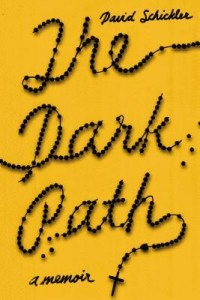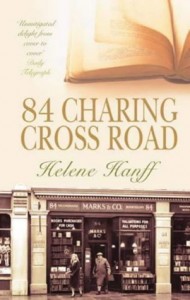 Title: The Dark Path (Goodreads)
Title: The Dark Path (Goodreads)
Author: David Schickler
Published: Riverhead Trade, 2013
Pages: 336
Genres: Non-Fiction
My Copy: Hardcover
Buy: Amazon, Book Depository, Kindle (or visit your local Indie bookstore)
If I was Catholic, I would want to be a Jesuit; they seem to be the most pretentious of all the Catholic congregations. Not that I would want to be a priest as I’m married but for David Schickler the desire to be a priest was a driving force in his life. The Dark Path is a memoir of Schickler’s struggle between a call to priesthood and his attraction to women. A memoir that explores his faith, sex and the internal conflict, The Dark Path is a funny and boldly honest look at his struggle.
I grew up in a strict religious home, though not Catholic, but I really connected with The Dark Path. Growing up, my parents were ministers and I often felt the pressure to join the ministry. Though it isn’t as daunting as becoming a priest, it made this book relatable. I’m often drawn to books with an internal struggle and when I first heard about this book, I knew it was something I had to read. The whole idea of choosing a life in service to God or giving into your sexual urges is an interesting topic and Schickler tackled it in a way that remained respectful to both choices.
While this is a book about religion and Catholicism in general, I think of this book as a struggle to decide what path to take. In our high school and college years we all face choices that will affect the rest of our lives and The Dark Path is essentially about those decisions. As I’ve had a strong religious upbringing there was just so much in the book that I could relate to and enjoy, this does make my review very biased but I can’t help it. I also married a Catholic so I had the opportunity to learn more about Catholicism while also having someone to answer all my questions I had in the book.
David Schickler has written one novel which is mentioned in this memoir called Kissing in Manhattan and also co-created the TV show Banshee, which I haven’t had an opportunity to watch. I have to wonder if both the novel and show portray a similar element of struggle in the characters as well as maybe a hint of religious politics because I think he captured this really well in this book. I get a sense that his writing style is dark, gritty and transgressive. You can see hints of this in his writing but he still managed to make this memoir hilarious and heart-warming.
There is so much I want to say about this book but I don’t want to give too much of the book away. The Dark Path is the first book to receive a 5 star rating for 2014 and I hope to find many people to talk to about this memoir. If you have a religious background and want to read about a struggle of faith then I highly recommend The Dark Path. I plan to go read Kissing in Manhattan soon and maybe even try and get a hold of Banshee.

 Title: My Life as a Fake (
Title: My Life as a Fake ( Title: Loaded (
Title: Loaded ( Title: The Paris Wife (
Title: The Paris Wife ( Title: Little Failure (
Title: Little Failure ( Title: 84 Charing Cross Road (
Title: 84 Charing Cross Road ( Title: The Sign of Four (
Title: The Sign of Four ( Title: Careless People (
Title: Careless People ( Title: Eyrie (
Title: Eyrie ( Title: The Narrow Road to the Deep North (
Title: The Narrow Road to the Deep North (